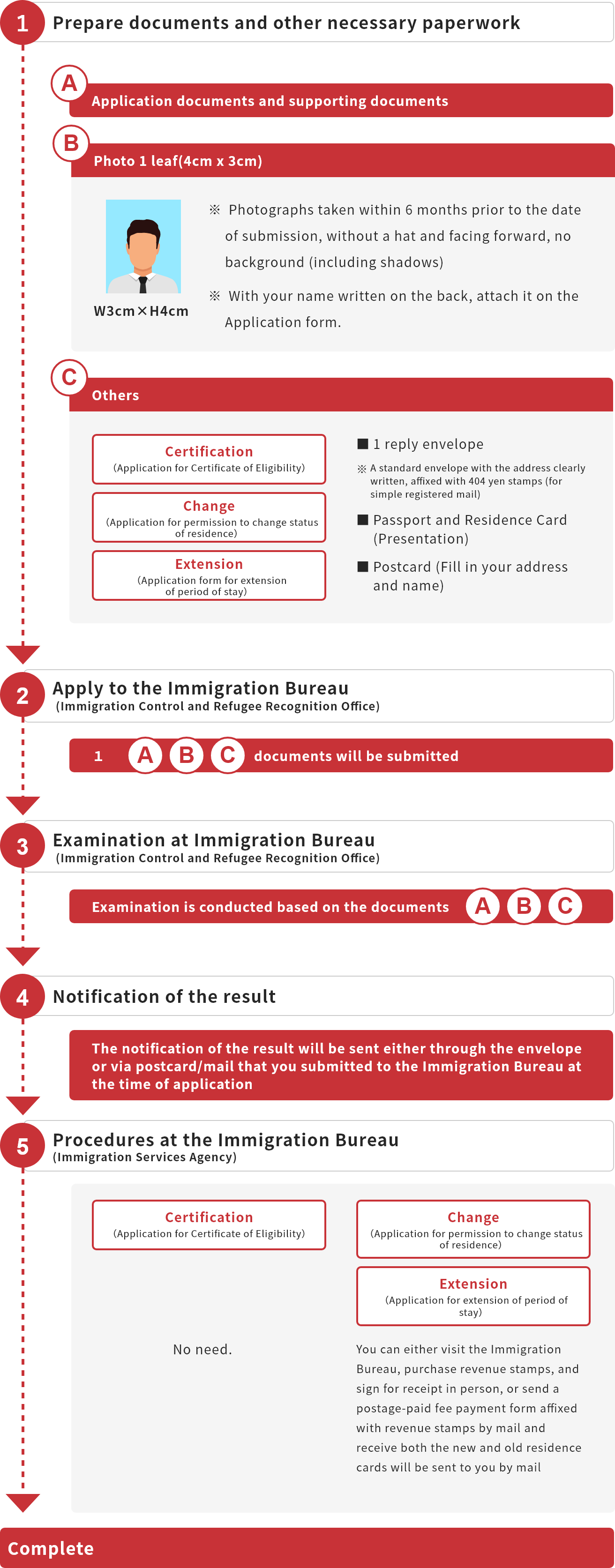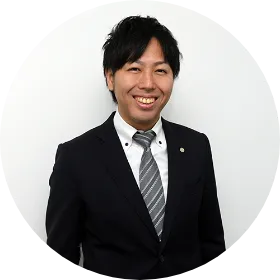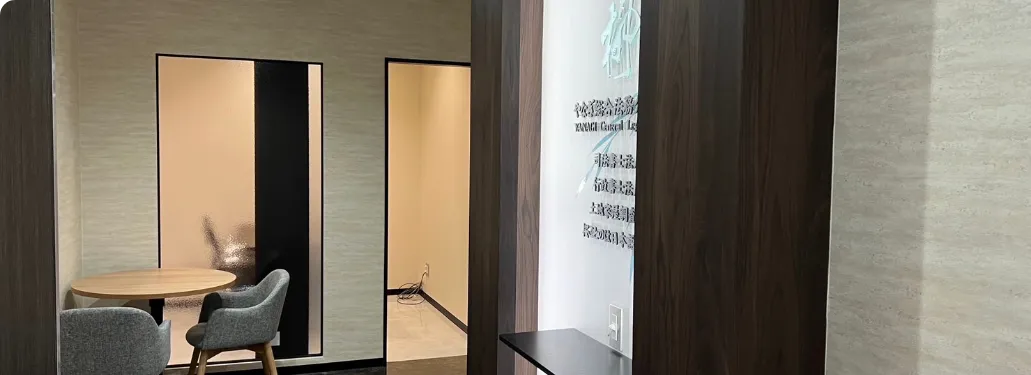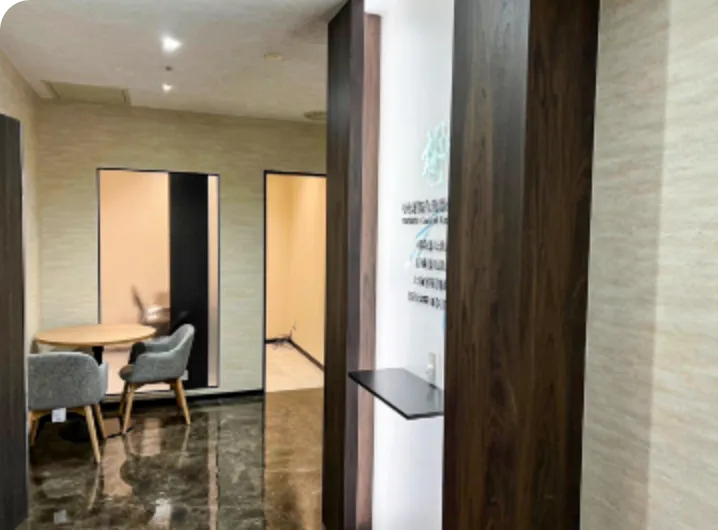What is a Dependent Visa, Application Process, Required Documents for Application, Key Points for Dependent Visa, etc.
For customers who
☑Are working in Japan, but want to invite my wife (husband) from her home country to live with me.
☑Applied for a Dependent visa on my own and was denied…
☑Want to change my visa status from a college student visa to a Dependent visa because I married a fellow international student.
☑Whose deadline for applying for a Dependent visa is approaching.
What is a Dependent Visa
The Dependent Visa is a status of residence for family members of a foreign national who is working or studying in Japan to live with that person in Japan. This visa is intended to prevent family members from being separated by work or other commitments in Japan.
Those who can obtain approval for this Dependent Visa are those who fit either (1) the spouse and children of a foreign national working in Japan on a work visa such as an Engineer/Specialist in Humanities/International Services visa, or (2) spouse and children of a foreign national enrolled in a Japanese school on a Student visa.
In addition to the Dependent VIsa, there are other visas for living together in Japan, such as the “Spouse or Child for Japanese National,” the “Spouse or Child for Permanent Resident”, the ” Long-Term Resident,” and the “Designated Activities Visa” for family members or parents of highly specialized workers.
However, the “Spouse or Child for Japanese National ” is for foreign family members of Japanese nationals (e.g., foreigners married to Japanese nationals), The “Spouse or Child for Permanent Resident ” is for foreign family members of a person with resident status (such as a foreigner married to a permanent resident), The “Designated Activities Visa” is for foreign family members who have the status of residence of a highly skilled professional and meet certain points/requirements, The “Long-Term Resident” is limited to Japanese nationals and dependent family members of third-generation Japanese Americans, spouses, etc. of Japanese nationals, spouses, etc. of permanent residents, and special permanent residents, etc., respectively.
Therefore, many foreign family members generally apply for this Dependent visa.
- Dependent Visa Requirements
Condition 1: Type of visa for people living in Japan
In order to apply for a Dependent Visa, a person who is working or studying in Japan (including those who plan to work in Japan in the future) must be granted a status of residence such as a Work visa or Student visa.
○ Types of “Work visas” for which Dependent visas can be applied for
- Professor Visa
- Artist Visa
- Religious Activities Visa
- Journalist Visa
- Business Manager Visa
- Legal/Accounting Services visa
- Medical Services Visa
- Researcher Visa
- Instructor Visa
- Engineer/Specialist in Humanities/International Services Visa
- Intra-company Transferee visa
- Nursing Care Visa
- Entertainer Visa
- Skilled Labor Visa
- Specified Skilled Worker (ii)
○ Types of visas other than a work visa for which a Dependent visa can be applied for
- Student Visa
- Cultural Activities Visa
Condition 2: Scope of “family”
The Dependent Visa covers up to a spouse (husband or wife) and children who are dependent on a person who is granted a visa under the condition above in ①. Children can be “adopted children” or “recognized illegitimate children” in addition to “biological children”, who are also eligible for the Dependent Visa. In addition, there is basically no age limit for children, but in some cases, it may be better to apply for other types of visas if they are already of adult age.
It should be noted that parents or siblings of a person who is granted a visa under the condition above in ① are not permitted on a Dependent Visa. If you wish to bring your parents or other family members with you, you will need to consider whether you can obtain a Designated Activities Visa or other visas.
Condition (3): Must be able to cover living expenses for the family.
Since a Dependent Visa basically does not allow a person to work in Japan, the person working or studying in Japan must have income and assets that can cover the living expenses of all family members living together in Japan on a Dependent Visa.
The fact that the English name of this Visa is “Dependent” rather than “Family” reflects this point.
- What you can and cannot do in Japan with a Dependent VIsa
What you can do in Japan
You may engage in the daily activities that you perform as a spouse or child in Japan. In other words, you can live a “normal life in Japan, living together as a family, traveling, shopping, studying at school, and receiving treatment at a hospital if you become sick or injured.
What you can’t do in Japan
- In principle, spouses and children cannot live separately. For example, it is not possible for spouses and children to live separately in Japan from the beginning since the status of residence is for “daily activities as a spouse or child”. However, there are cases in which it is possible to live separately if there is a reasonable reason, such as a change of schooling or a transfer to a different city.
- Basically, it is not allowed to work for this visa. However, if you obtain “Permission to Engage in Activity other than that Permitted under the Status of Residence previously granted”, you may work part-time within the scope of the regulations.
| Dependent Visa Overview | |
|---|---|
| Activities | Daily life in Japan as spouse and children |
| Period of Stay | Period individually designated by the Minister of Justice (maximum 5 years, renewable) |
| Ministerial Ordinance of the Standards and Regulations | Must be a family member (spouse or child) of a visa holder who is eligible to apply for a Dependent visa |
Application for Dependent visa
This section provides an easy-to-understand explanation of the application process, required documents for application, and the average processing period when applying for a Dependent visa.
Application Process
Let’s take a look at the actual application process for ” Certification,” “Change,” and “Extension” of a Dependent visa.


For more information on the Immigration Bureau (Immigration Bureau) and the Immigration Agency (Immigration Control and Refugee Recognition Agency), please click here(currently in preparation) for a detailed explanation.
Required Documents for “Certification” Procedure
The following is a guide to the basic required documents for the approval of a Dependent visa (application for issuance of a certificate of eligibility). The required documents listed below are the basic ones, and further supporting documents may be necessary depending on the applicant’s situation and other factors.
It often requires specialized knowledge and experience to prepare the necessary documents for the applicant’s situation. Rather than spending a lot of time and effort and receiving unwanted results, it is better to consult with a specialist (please feel free to use our “free consultation” service).
| Terms to be noted | |
|---|---|
| Applicant | A family member (spouse/children) who will be coming to Japan and wishes to apply for a Dependent Visa. |
| Breadwinner | A person who is bringing a family member (spouse/children) and has a work visa or a student visa. |
| ① Application for Certificate of Eligibility 1 copy |
| ② Photo 1 leaf (4 cm x 3 cm) |
| ③ Reply envelope with 404 yen postage affixed |
| ④ One of the following documents that proves the relationship between the applicant and the dependent (1)1 copy of family register (2)1 copy of marriage registration acceptance certificate (3)Marriage certificate (copy) 1 copy (4)Birth certificate (copy) 1 copy (5)Documents corresponding to (1) to (4) above as appropriate |
| ⑤ 1 copy of dependent’s residence card or passport |
| ⑥ Documents certifying the dependent’s occupation and income (1)If the dependent engages in activities that involve operating a business with income (such as running a business) or receiving remuneration (if working for an employer, etc.) a.Certificate of employment or copy of business license, etc. (*1) 1 copy b.Certificate of taxation (or tax exemption) and Certificate of tax payment (showing total annual income and tax payment) (*2) 1 copy each (2)If the dependent is engaged in activities other than (1) above (for purposes other than work, such as studying abroad) a.Certificate of bank balance in the name of the dependent or certificate of scholarship award specifying the amount and duration of the award, if appropriate. b.Something similar to a. above that proves the applicant’s ability to support his/her living expenses. |
*1 Please submit a certificate showing the occupation of the dependent.
*2 Issued by the ward office, city hall, or town hall of the municipality in which you reside as of January 1.
*2 If the certificate shows both gross income and tax payment status (i.e., whether or not taxes are being paid) for the year, either one is acceptable.
*2 If your ward office, city hall, or town hall does not issue the certificate soon after your entry into Japan or because you have moved to a new address, please contact the nearest regional immigration office.
You can also download the “Application for Certificate of Eligibility” (PDF and Excel) and other documents from the website of the Immigration Bureau (Immigration and Naturalization Service), so please check it out.
Required documents for “Extension” procedure
The following is a guide to the basic required documents for the Extension of a Dependent visa (application for permission to extend the period of stay). The required documents listed below are the basic ones, and further supporting documents may be required depending on the applicant’s situation.
It often requires specialized knowledge and experience to prepare the necessary documents for the applicant’s situation. Rather than spending a lot of time and effort and receiving unwanted results, it is better to consult with a specialist (please feel free to use our free consultation service).
| Terms to be noted | |
|---|---|
| Applicant | A family member (spouse/children) who will be coming to Japan and wishes to apply for a Dependent Visa. |
| Breadwinner | A person who is bringing a family member (spouse/children) and has a work visa or a student visa. |
| ① Application for permission for extension of period of residence 1 copy |
| ② Photo 1 leaf (4 cm x 3 cm) |
| ③ Applicant’s passport and resident card (to be presented) |
| ④ One of the following documents that prove the relationship between the applicant and the dependent (1)Copy of family register (1 copy) (2)Marriage certificate (1 copy) (3)Marriage certificate (1 copy) (4)Birth certificate (1 copy) (5)Documents equivalent to (1) through (4) above, as appropriate |
| ⑤ A copy of the dependent’s residence card or passport |
| ⑥ Documents certifying the dependent’s occupation and income (1)If the dependent engages in activities that involve operating a business with income (such as running a business) or receiving remuneration (if working for an employer, etc.) a.Certificate of incumbency or copy of business license, etc. (*1) 1 copy b.Certificate of taxation (or tax exemption) and certificate of tax payment (showing total income and tax payment for the year) (*2) One copy each (2)If the dependent is engaged in activities other than (1) above (for purposes other than working, such as studying abroad) a.Certificate of bank balance in the name of the dependent or certificate of scholarship award specifying the amount and duration of the award, if appropriate. b.Something similar to a. above that proves the applicant’s ability to pay for living expenses. |
*1 Please submit a certificate showing the occupation of the dependent.
*2 Issued by the ward office, city hall, or town hall of the municipality in which you reside as of January 1.
*2 Either one is acceptable, as long as the certificate shows both gross income and tax payment status (whether or not taxes have been paid) for the year.
*2 If your ward office, city hall, or town hall does not issue the certificate soon after your entry into Japan or if you have moved to a new address, please contact the nearest regional immigration office.
You can also download the “Application for Permission to Extend Period of Stay” (PDF and Excel) and other documents from the website of the Immigration Bureau (Immigration and Naturalization Service), so please check it out.
Required documents for “Change” procedure
The following is a guide to the basic required documents for a change of status of residence visa (application for permission to change status of residence) to a Dependent visa. The required documents listed below are the basic ones, and further supporting documents may be required depending on the applicant’s situation.
It often requires specialized knowledge and experience to prepare the necessary documents for the applicant’s situation. Rather than spending a lot of time and effort and receiving unwanted results, it is better to consult with a specialist (please feel free to use our “free consultation” service).
| Terms to be noted | |
|---|---|
| Applicant | A family member (spouse/children) who will be coming to Japan and wishes to apply for a Dependent Visa. |
| Breadwinner | A person who is bringing a family member (spouse/children) and has a work visa or a student visa. |
| ① Application for permission for change of status of residence 1 copy |
| ② Photo 1 leaf (4 cm x 3 cm) |
| ③ Applicant’s passport and resident card (to be presented) |
| ④ One of the following documents proving the status relationship between the applicant and the dependent: (1)1 copy of family register (2)1 copy of marriage registration acceptance certificate (3)Marriage certificate (copy) 1 copy (4)Birth certificate (copy) 1 copy (5)Documents corresponding to (1) to (4) above as appropriate |
| ⑤ A copy of the dependent’s residence card or passport |
| ⑥ Documents certifying the provider’s occupation and income (1)If the dependent engages in activities that involve operating a business with income (e.g., running a business) or receiving remuneration (e.g., working for an employer) a.Certificate of employment or copy of business license, etc. (*1) 1 copy b.Certificate of taxation (or tax exemption) and certificate of tax payment (showing total annual income and tax payment) (*2) 1 copy each (2)If the dependent is engaged in activities other than (1) above (for purposes other than working, such as studying abroad) a.Certificate of bank balance in the name of the dependent or certificate of scholarship award specifying the amount and duration of the award, if appropriate. b.Something similar to a. above that proves the applicant’s ability to support his/her living expenses. |
*1 Please submit a certificate showing the occupation of the dependent.
*2 Issued by the ward office, city hall, or town hall of the municipality in which you reside as of January 1.
*2 If the certificate shows both gross income and tax payment status (i.e., whether or not taxes are being paid) for the year, either one is acceptable.
*2 If your ward office, city hall, or town hall does not issue the certificate soon after your entry into Japan or if you have moved to a new address, please contact the nearest regional immigration office.
You can also download the “Application for Permission to Change Status of Residence” (PDF and Excel) and other documents from the website of the Immigration Bureau (Immigration and Naturalization Service), so please check it out.
Explanation of required documents
Here is clear explanation of the “Statement of Reasons for Application” which is an additional document to be added to most visa applications, including Dependent visas.
- Statement of Reasons for Application
In most cases, a “Statement of Reasons for Application” is added to the visa application process, whether applying for a Dependent visa or any other type of visa.
This is to explain in more detail the reasons and circumstances as to why an individual needs to make such an application, which are not clear from the “Required Documents” listed above.
By submitting this in addition to the “Required Documents” and other documents listed above, the need for the application for each applicant will be better understood through the application review process.
We prepare and submit this “Statement of Reasons for Application” and other documents to the Immigration and Immigration Services Agency to ensure that your application is reviewed as smoothly as possible, according to your individual circumstances.
Average review period
The average review period for a Dependent visa for “Certification” is about one to three months, while that for “Extension” or “Change” is about two weeks to one month. This is just a standard, and the examination period will vary depending on the applicant’s application, the situation, and the congestion of the application reception at the Immigration Bureau or Immigration Office.
Key Points for a Dependent Visa
This section provides an easy-to-understand explanation of the key points of the Dependent Visa, including things to keep in mind and questions that are often asked.
Points to keep in mind when working part-time
When working part-time on a Dependent VIsa, it is necessary to obtain “permission to engage in activities other than that permitted under the status of residence previously granted ” at the regional immigration bureau. And please be sure to follow the “Rules for Engaging in Activities other than that Permitted under the status of residence previously granted ” when you work part-time.
Part-time work may be performed within the limit of “up to a total of 28 hours in seven consecutive days. For example, even if you have two or three part-time jobs, the total hours you can work part-time is limited to 28 hours in seven consecutive days by one person, not by each of those part-time jobs.
Seven consecutive days” does not mean “one week (Sunday through Saturday) in a 52-week year. Seven consecutive days” means “seven days no matter which day of the week you count. For example, if you count from Tuesday, it is 7 days until Monday of the following week, and if you count from Friday, it is 7 days until Thursday of the following week, and so on.
Incorrect “7 consecutive days” and counting of total hours for part-time work.
Sun.
Mon.
Tue.
Wed.
Thu.
Fri.
Sat.
7 hours
0 hour
7 hours
0 hour
7 hours
7 hours
0 hour
7 hours
0 hour
7 hours
0 hour
7 hours
7 hours
0 hour
3 hours
4 hours
7 hours
7 hours
7 hours
0 hour
0 hour
In this table above, the “seven consecutive days” are always counted from Sunday to Saturday for a total of 28 hours of part-time work. However, this is not correct. The first week from Sunday to Saturday (7 days in blue) is 28 hours, but the second week from Thursday to Wednesday (7 days in green) is 35 hours in 7 consecutive days, which is a violation. The total hours worked in the “seven consecutive days” must not exceed 28 hours in total, no matter which day of the week is counted.
×
Part-time jobs in the sex industry are prohibited.
The following types of businesses fall under the category of adult entertainment businesses, as well as sex-related businesses.
・A business that “entertains” customers and provides them with entertainment or food and beverages. Host clubs, cabarets, etc.
・Coffee shops and bars that serve food and beverages to customers and operate with an illumination level of 10 lux or less in the seating area.
・Coffee stores and bars that allow customers to eat and drink, have seating that is difficult to see through and have a floor space of 5 m3 or less.
・Businesses that allow customers to play games that may stimulate their gambling spirit. Mah-jongg parlors, pachinko parlors, etc.
・Game centers, etc.
Even if the store looks like a coffee shop or restaurant, it may actually be an adult entertainment business, so please research carefully before applying for a part-time job. In addition, indirect works such as cooking, cleaning, and distributing flyers and tissues on the street in the above businesses are also prohibited.
When working part-time with a Dependent VIsa, please make sure to check carefully in advance whether or not the place is an adult entertainment business, and pay particular attention to the rules on working hours.
Notification while living in Japan
This section provides information on the procedures and notifications required while living in Japan on a Dependent Visa.
1
Notification when moving
When you change your address due to a move, etc., you must complete the “notification of moving out” procedure at the ward office, city hall, or town hall of the municipality where you used to live and the “notification of moving in” procedure at the ward office, city hall, or town hall of the new municipality where you moved to within 14 days after the move. If you are moving within the same city, ward, town or village, you must complete the “notification of change of address” procedure.
If you complete the procedures for moving to a new address at the ward office, city hall, or town hall of your city, ward, or village, your new address will be listed on the back of your residence card. This procedure allows you to skip the change of address procedure at the Immigration Bureau, so please be sure to follow the procedure when you move.
2
Notification when there is a change or loss of your resident card
- Any change in name, date of birth, gender, nationality/region
Notify the regional immigration office (the immigration office with jurisdiction over the area where your address is located) or the General Information Center for Foreign Residents.
- If you have lost your resident card
Report to the regional immigration office (the immigration office with jurisdiction over the area where your address is located) or the General Information Center for Foreign Residents. If you lost your resident card due to the theft, you will need to go to the police station and obtain a “Certificate of Theft Report”, If you do not know how you lost it, you will need to the police station and obtain a “Certificate of Lost Article Report”, If you lost your resident card due to a fire or a disaster, you will need to apply for a “Disaster victim certificate” at the ward office, city hall, or town hall of the municipality in which you live.
3
Notification of separation or bereavement
If a person on a Dependent Visa becomes separated or dies with his/her spouse, he/she is required to notify the Immigration Office within 14 days. In addition to your name, date of birth, gender, nationality/region, address, and resident card number, you are required to report the following information according to the following
- Date of separation from spouse, if any
- Date of death of spouse, if any
You can choose from the following three methods of notification.
- Online (Immigration and Residency Management Agency’s Electronic Reporting System page)
- Notification at the immigration office with jurisdiction over the address
- Notification by mail
Frequently Asked Questions
Can a person with a Dependent Visa work in Japan?
For this reason, they are required to obtain permission to engage in activity other than that permitted under the status of residence previously granted before engaging in work.
Please note that the P permission to engage in activity other than that permitted under the status of residence previously granted allows you to work 28 hours per week, but there are restrictions on the type of work you can do.
However, if you earn more than your breadwinner (husband/wife on a working visa), you will not only not be eligible for a Dependent visa, but your family member’s visa may also be affected, so please be careful to observe the time limit.
Can I invite my parents to Japan on a Dependent Visa?
What happens to a child who received a Dependent Visa when he/she becomes an adult?
What happens in case of divorce?
What about family members of those staying with a Student visa?
Dependent Visa Support and Costs
The support and fees for the Dependent visa are as follows
| Support Details | Application document check plan (Consumption tax included) |
Application document preparation plan (Consumption tax included) |
Reliable full support plan (Consumption tax included) |
|---|---|---|---|
| Free consultation (first time only) | 0 yen | 0 yen | 0 yen |
| Dependent Visa “Certification” Application Support | 55,000 yen~ | 110,000 yen~ | 110,000 yen~ |
| Dependent Visa “Extension” Application Support | 33,000yen~ | 55,000 yen~ | 55,000 yen~ |
| Dependent Visa “Change” Application Support | 55,000 yen~ | 110,000 yen~ | 110,000 yen~ |
In visa applications, it is often difficult without expertise and experience to determine and manage “what materials are required” and “what materials are not required” as necessary materials, and to manage schedules and preparations such as “what materials must be prepared by when.
In addition, there are many cases where the hard work and time spent on such a difficult task does not yield the desired results due to shortages.
We provide support for visa applications in a kind, thorough, and efficient manner, taking into account the applicant’s situation. We offer customers a sense of security and satisfaction that only experts can provide.
For the better resolution of the applicant’s issues, we collaborate with various specialists, including administrative scriveners, lawyers, and judicial scriveners, to provide one-stop legal services as a legal group. We also have foreign staff members who can assist in English, Chinese, Korean, Vietnamese, and Nepali.
Please feel free to contact our office for inquiries and consultations. We offer a free consultation (limited to the first session) where you can consult with experts at no charge. You can make a reservation for a free consultation here.
Editor of this article

- Ryota Yanagimoto
- Administrative Scrivener/Judicial Scrivener
At the age of 24, he passed the national examinations for judicial scrivener, administrative scrivener, and wage service manager at the same time.
While working as a full-time lecturer at a major prep school, he independently opened a legal office related to judicial scriveners and administrative scriveners,
and he has experience as a judicial scrivener and an administrative scrivener for more than 15 years so far.
He has been actively contributing to various industries such as publicly listed companies, real estate companies, financial institutions, elderly care services, and professional organizations by conducting seminars, lectures, and talks.
And now he has a record of over 60 presentations so far.
Furthermore, as the president of a Japanese language school announced by the Ministry of Justice and Acts, and an advisor to a real estate company (capable of handling foreign clients),
he has been involved in various aspects of industries related to foreigners.








 0120-138-552
0120-138-552 Free
Consultation
Free
Consultation Contact Us
Contact Us